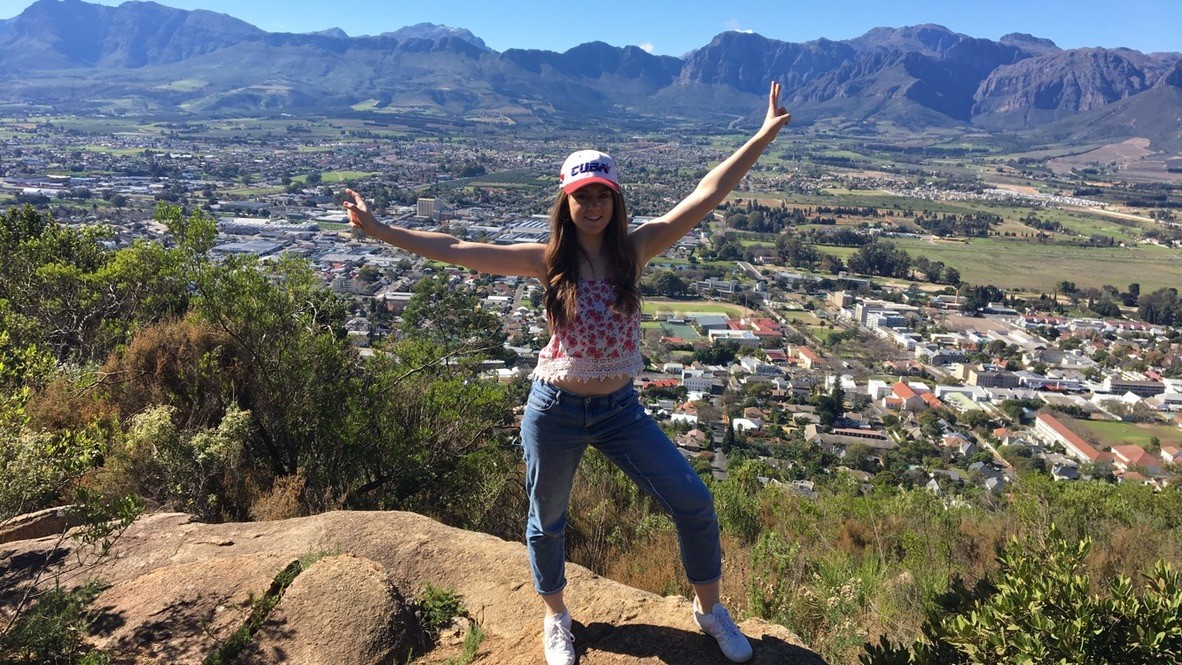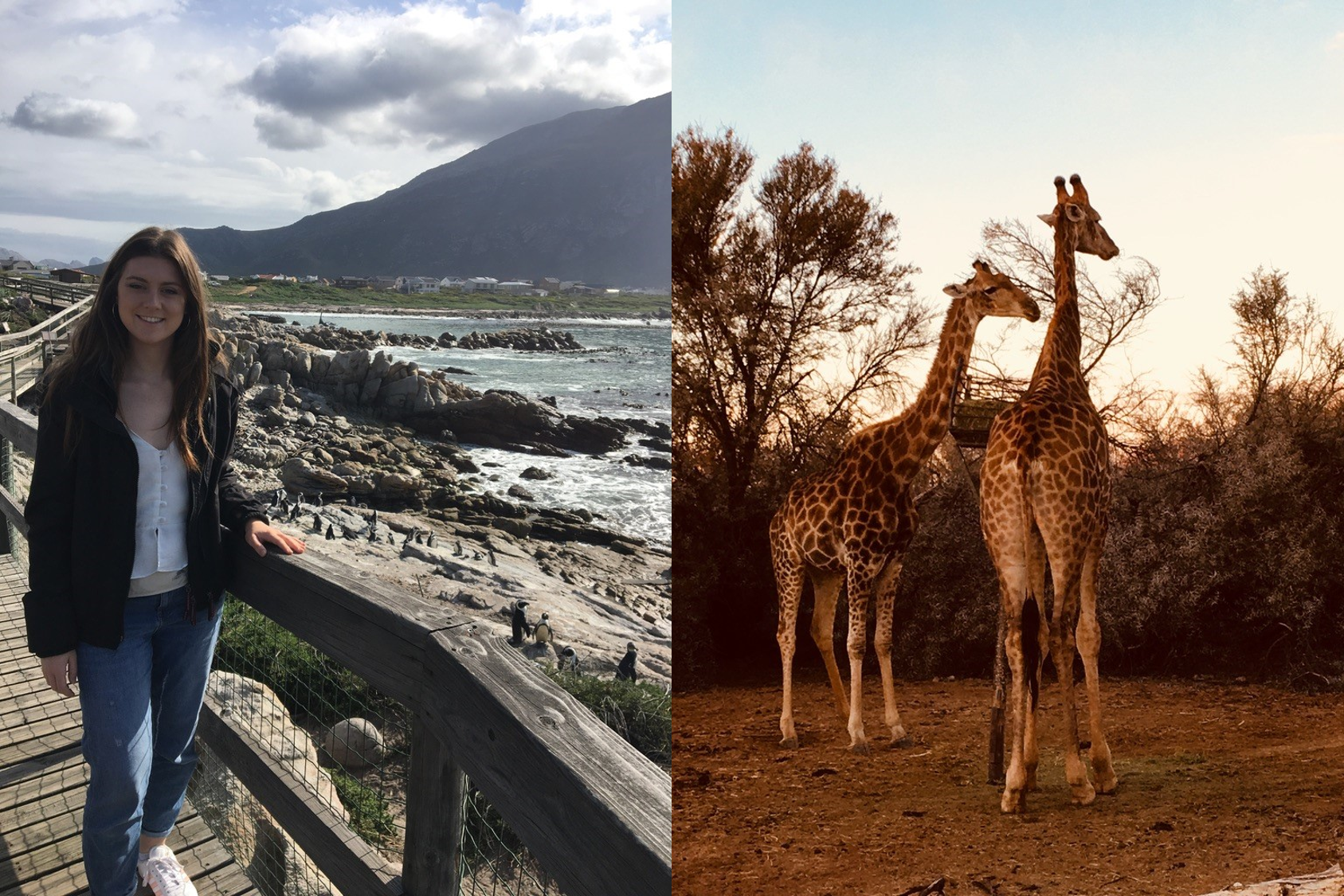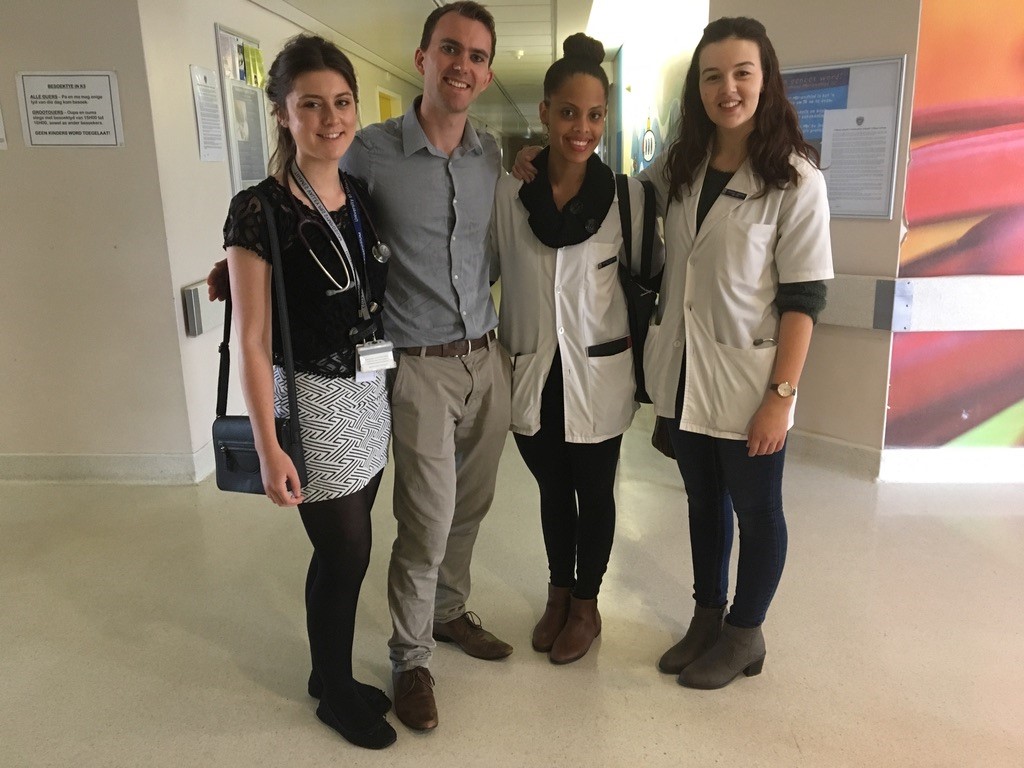Paediatrics and penguins in South Africa
11 September 2018
Fifth-year Medicine student Chloe Jacklin has just returned from a busy summer spent on clinical placement in South Africa.
Chloe was able to work in the paediatrics department at Paarl Hospital outside of Cape Town thanks to an award from the Vaughan Williams Medical Fund. This fund was established by Hertford’s celebrated former Medicine Tutor – Miles Vaughan Williams, who died at the age of 98 in 2016 – and provides a travel award for Medicine students and financial support towards the costs of textbooks and stethoscopes.
As well as work in the regular hospital, where she was able to meet South African medical students, Chloe also visited a penguin hospital and went on a safari trip in the Western Cape Province. Below is Chloe’s own report of the trip which gives more detail about her paediatric work (and the penguins!).
South Africa is a country known for its volatile history and stunning natural beauty.
The huge socio-economic imbalance between those at the top and those at the bottom – a remnant of apartheid – has left the country and its children vulnerable to TB, HIV and malnutrition. The fascinating history and geography combined with the practicalities (one of the country’s 11 official languages in English) made South Africa seem like a fantastic place to learn paediatric medicine and expand my knowledge and understanding of the world.
We chose to do our placement at Paarl Hospital, just 40 minutes-drive from Cape Town and recognised as one of the better state hospitals in South Africa. From the first day we had a more hands on experience that what we would have had in the UK. We were expected to see patients ourselves before the consultant ward round and decide the investigations and management plan for our patients based on our findings. This felt like a huge learning curve, and whilst I was grateful to have the opportunity to refine my clinical skills, I couldn’t help but feel daunted by the responsibility given to me.
Of course, the care of the patients wasn’t solely in my hands – the consultants and registrars would check my plans and make changes – but it was fantastic being more engaged with the clinical team than I had had chance before. The feeling of satisfaction I had when one of my ideas helped a patient to recovery or prevented them from deterioration reaffirmed for me medicine would be a great career.
When I was in South Africa I was hoping to learn not just more about the pathophysiology and management of diseases like TB, HIV and severe acute malnutrition (SAM), but also understand how these diseases affect the patients’ lives and those of their families. I was sad to find out how rife the stigma surrounding HIV has continued to be; even the doctors passed judgement over parents who had defaulted treatment which resulted in their children developing HIV. I failed to see how this judgement helped the mothers improve their ability to care for their children, especially when it is likely the stigma may have made the parents default in the first place.
I was also saddened to hear a three-month-old patient had developed disseminated TB and TB meningitis because there had been a shortage of the BCG vaccine when she was born. I saw many cases of SAM and it was not uncommon to find out this was down to lack of parent education and not just food poverty. Overall, it seems South Africa has a long way to go to improve education and infrastructure to tackle these diseases from the root.
We made friends with some medical students – Wianke and Adrian – from the University of Stellenbosch while we were on the wards in Paarl. They were very welcoming and helped to teach us how to carry out procedures on paediatric patients. We had the chance to not only practice bloods and cannulas but also to do Mantoux tests, lumbar punctures and in-out catheters. We gained confidence in our ability and enhanced our team working skills. We also learnt when to call for senior help and, along with our new skills, I believe this placement will benefit me when I am practicing as a foundation doctor in the UK.
Before I went to South Africa I was interested in paediatrics as a career because I had enjoyed learning about the different diseases children encounter during our lectures. After my placement I felt even more encouraged to pursue paediatrics because of the close relationship you can form as a doctor with the patient and also with their families.
At the weekends we took the opportunity to explore the area surrounding Paarl. On the first weekend we stayed in a holiday home in Cape Town which had a beautiful view of Table Mountain. We took a trip up in the cable car to the top of the mountain, and although it was a little bit cloudy, there were just enough gaps in the mist to give us an excellent view of Cape Town and Robben Island in the distance. We went on a catamaran from the waterfront to hopefully catch a glimpse of some whales and whilst we didn’t see any we did get to see seals and Cape Town from the water.
On the Sunday we went on a sight-seeing bus tour where we learnt more about the history of South Africa, including the influence of British colonialism. We rounded up the weekend by visiting one of our medical student friends, Adrian, who wanted to show us traditional South Africa Braaie (a type of BBQ that uses wood instead of coals). It was great to be able to explore both the tourist parts of Cape Town and find out how real South African people live.
On the second weekend we went to Pringle Bay to see the biggest colony of African penguins in South Africa. They were very cute, and we really enjoyed finding out more about the penguins and the rescue attempts made by the Penguin Hospital there. The whole area was part of a nature reserve and the scenery was stunning, including the coastal road on the way down which had to be the best road I have ever been on. We also climbed to the top of a waterfall while we were there.
My favourite weekend had to be the last weekend when we went on a safari trip. The safari parks in the Western Cape Province don’t tend to be as large as other ones in South Africa, and there is more of a focus on conservation, meaning that we were able to see lots more animals, including all of the ‘Big Five’. My favourite animals were the giraffes and the rhinos because we could drive a bit closer to them as they were very friendly. However, the safari park does make a big effort to keep the animals as wild as possible because being too tame – especially for the rhinos – could be a danger to their survival.
I’d like to thank the Vaughan Williams Medical Fund for awarding me this grant to make my placement in South Africa possible – I strongly believe it will help me to be a better doctor.
Chloe Jacklin


